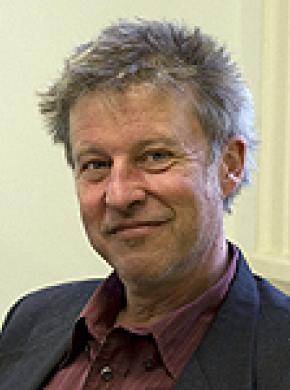
Biography:
Stephan Palmié is a Norman & Edna Freehling Professor of Anthropology and of Social Sciences in the College. He conducts ethnographic and historical research on Afro-Caribbean cultures, with an emphasis on Afro-Cuban religious formations and their relations to the history and cultures of a wider Atlantic world. His other interests include practices of historical representation and knowledge production, systems of slavery and unfree labor, constructions of race and ethnicity, conceptions of embodiment and moral personhood, science and technology studies, and the anthropology of food and cuisine. He earned his D.Phil from the University of Munich in 1989 and Habilitation from the University of Munich in 1999. His research interests include: sociocultural anthropology, Afro-Caribbean religions, forms of historical consciousness, constructions of race and ethnicity, embodiment and personhood, food and cuisine, science and rationality, and Cuba.
Project Title: The Cooking of History: How not to Study Afro-Cuban Religion
This project explores the evolution and global dissemination of Afro-Cuban religious practices, particularly those subsumed under the label of "Santería," which has been described as Cuba's "unacknowledged national religion." Since the religious liberalization of Cuba in 1991, Afro-Cuban traditions have become increasingly visible, integrating into the fabric of Cuban socialism while also gaining recognition as a global religious formation. Central to this formation are the worship of oricha, orixás, and orishas, deities that have been worshipped across various diasporic communities in the Americas and West Africa, particularly among the Yoruba of Nigeria. The paper examines how the spread of these practices, facilitated by the Cuban diaspora, has given rise to contested notions of cultural "authenticity" and the fluidity of religious traditions as they traverse time and space. Drawing on sociologist Alejandro Frigerio's concept of "secondary diasporas," it highlights the dynamic and often contentious ways in which Afro-Cuban religious practices are reinterpreted and re-legitimized in new contexts, particularly in the United States. The abstract also critiques the idea of a linear trajectory from Africa to the Americas, arguing instead that the construction of "African" identity and religious forms in the diaspora is more dialogical and dynamic than traditionally assumed. The paper ultimately challenges the notion that "African origins" can be easily isolated, emphasizing the role of reflexive self-classification in the formation and transformation of Afro-Cuban and broader African diasporic religious identities.
 THE UNIVERSITY OF CHICAGO
THE UNIVERSITY OF CHICAGO

